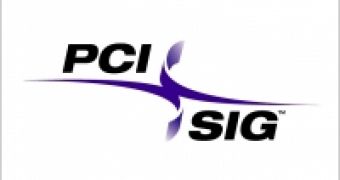The PCI Special Interest group has just announced that it plans to start developing a cabled version of PCI Express that should be able to deliver transfer speeds up to 32Gbits and that could prove to be a competitor for Intel's Thunderbolt high-speed interconnect.
The new technology is based on the third generation of PCI Express and, most likely, it will support four parallel lanes each with a maximum throughput of 8 Gtransfers/second.
Initially, the technology will use copper wires, but future versions could migrate towards higher speeds copper links or to an optical cable.
This way, the interconnect should be able to span distances longer than the three meters specified for its first iteration.
According to EETimes, the cables and connectors used by this PCIe based technology are expected to be flatter than those of Intel's Thunderbolt, while also providing up to 20W of power to the peripherals attached.
To develop this technology, PCI SIG has already started to assemble a special working group that should deliver a standard system makers can implement in products before June 2013.
"This will help proliferate PCI Express into new business opportunities," said Al Yanes, president of the PCI SIG, but the organization's representative refused to comment on Thunderbolt directly.
"There are solutions in the industry--Thunderbolt is one of them, and some companies are doing own thing," he added.
The biggest advantage that PCI SIG's implementations might have over the Thuderbolt interconnect is that is based on an industry standard rather than on a proprietary technology.
Furthermore, Thuderbolt uses a router chip on either end of the connection to support multiple protocols and daisy chaining of devices, a solution that adds extra costs to the devices that incorporate it.
"Thunderbolt was interesting, but it did not solve the problems we have the way we want to have them solved," said one source close to the PCIe initiative, who asked not to be named, to the EETimes publication.
While Apple "is fine with the extra cost of the router chips, we don’t need [the multiprotocol support] and a couple extra chips don't make business sense for us," the source added.
Intel introduced the Thunderbolt technology in February together with Apple's 2011 MacBook and it includes two 10 Gbits/s bi-directional channels using a standard mini DisplayPort connector.
Even though the interconnect has been in the market for more than four months now, support is limited and only a handful of hardware makers plan to implement it in their future devices, many preferring to stick with USB 3.0 for now.

 14 DAY TRIAL //
14 DAY TRIAL //